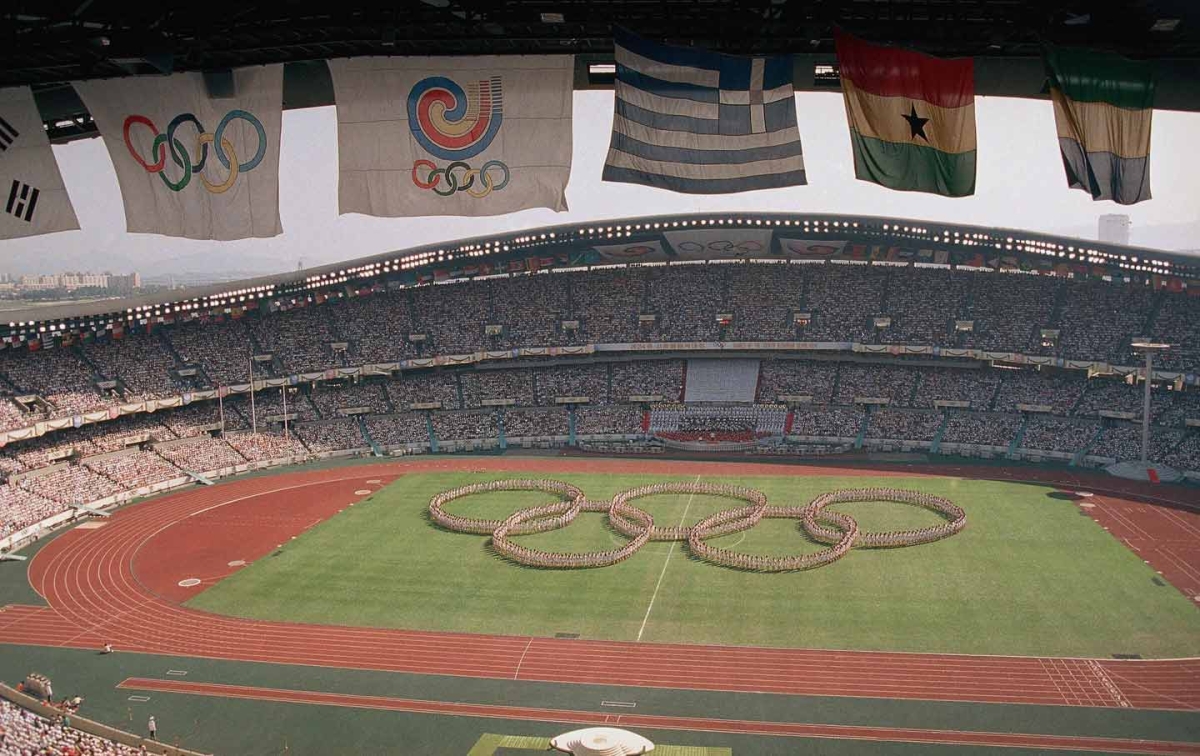From Seoul 1988 to Pyeongchang 2018

Seoul 1988 Olympic Opening Ceremony
BY MATTHEW FENNELL AND JAE-HYUK LEE, ASIA SOCIETY KOREA STAFF WRITERS
South Korea is known as one of the most technologically and economically advanced countries in the world. This development has enabled the country to host arguably the three largest sporting events: the Summer Olympics, the FIFA World Cup, and the Winter Olympics. While sports play an important role for South Koreans, so does politics. The protests, scandals, and early elections that the country experienced in the build up to Pyeongchang 2018 were also present in the months before the Summer Olympics of 1988.
In 1987, just one year before the Seoul Olympics, millions of people took to the streets in protest of President Chun Du-hwan’s Constitutional protection that prevented presidential elections. Following three weeks of riots in a period referred to as the “June Struggle”, the democratic drive forced the ruling government to rewrite the Constitution to allow for elections by direct popular vote. This movement led to the establishment of the Sixth Republic, the present-day government of South Korea.
Despite the distractions prior to Seoul 88, the Olympics were a great success for the country. A great deal of preparation went into the Games, with infrastructure built that is still used today: a new sports complex was built that continues to host sports and concerts; the subway system was expanded, which still transports thousands of people around the capital every day; and brand-new highways were constructed, which continue to be jammed during rush hour. Most of all, the 1988 Olympics helped signify the entry of South Korea onto the world stage.
Sports play a vital role for South Korea. In the thirty years since hosting the 1988 Olympics, the country has also hosted: the Asian Games in 1992, 2002, and 2014; the FIFA World Cup in 2002; the IAAF World Championships in Athletics in 2011; and the Formula One Korean Grand Prix from 2010 until 2013.
Fast forward to 2016 and 2017 and we can see parallels to the events thirty years ago. South Korea once again experienced so much in such a short space of time; starting with North Korea conducting a nuclear test, the presidential scandal involving Park Geun-hye, the corruption scandal involving big businesses, Korea’s biggest conglomerates under the spotlight, the impeachment of the president, and finally the special elections which saw Moon Jae-in take power. While politics have dominated the headlines in Korea of late, now it is time to focus on the Winter Olympics as the country is set to welcome athletes and supporters from 92 different countries. State-of the-art venues have been constructed, in addition to a new high-speed train line and expressway, as once again the country is ready to showcase itself to the world.
